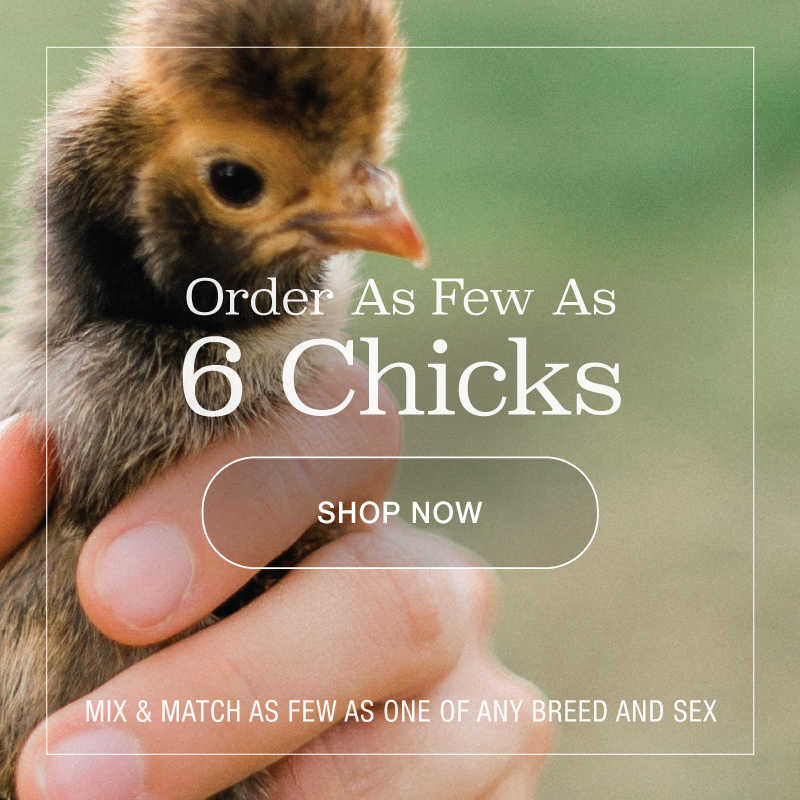[scg_html_flock_integration_series]
Disease and Parasites
When you introduce new chickens to your flock, you run the risk of also introducing new diseases or parasites to your flock. If you take your chickens to poultry shows, then you run that same risk when you reintroduce chickens that were taken to the show back into your main flock.
Quarantine
The best and most effective way to protect your flock from diseases introduced by new chickens is to quarantine them. When you quarantine a chicken or several chickens, you keep them separate from the rest of the flock for an extended time period. We recommend a quarantine of at least 30 days.
During the quarantine, care for the quarantined chickens normally, giving them food and water, but do not allow any contact with the existing flock. Thoroughly wash your hands and disinfect your feet and anything else that comes in contact with these chickens or their environment or manure. We carry several disinfectants that work well.
While the chickens are in quarantine, watch them closely for any signs of parasites, such as mites, and for any signs of disease, such as respiratory problems, or mucus discharges from the chickens’ eyes or nostrils.
Another Precaution
Chickens in a flock can build up an immunity to a disease yet still be carriers of that disease. If your new chickens have such an immunity and are disease carriers, the quarantine described above won’t be enough, and the new chickens could still introduce disease into your flock undetected.
There is a way to guard against this. It involves a little risk, but it minimizes the risk of infecting the main flock. Take one chicken from your main flock and move it into the quarantine with the new birds. Keep that chicken with your other quarantined birds for the entire quarantine period. Watch her closely. If she begins to develop any signs of disease, it is likely that she was infected by the new birds, so in that case, do not introduce the new birds into the flock. On the other hand, if she makes it through the quarantine period without any signs of disease, then you can be reasonably sure that it is safe to introduce her and the new birds into your flock.
With this approach, you run the risk of losing one chicken from your main flock to disease, but you greatly reduce the risk of losing your entire flock.
Baby Chicks from Murray McMurray Hatchery
Murray McMurray Hatchery takes a number of precautions to make sure that any baby chicks you receive from us are healthy and free of disease. This eliminates any concern you may have about the baby chicks introducing disease to your existing flock, but there are still some things to consider.
Baby chicks are not able to defend themselves against larger, more mature chickens, so they should be raised separately until they reach maturity. Second, if you have any concerns about disease or parasites in your existing flock, take proper precautions to make sure that you don’t risk introducing it to your new chickens.
In next week’s article, I will discuss how to integrate the new chickens into your existing flock.




I have found the comment from Barb Hendrix to work very well. I have used this same method introducing new chickens to the existing flock and I too have had no problems.
We read somewhere that when your pullets are 10 to 12 weeks old, and you want to add them to your existing flock, do so at dusk. This works out real well, the adults wake the next morning with the new addition to the coop, and are somewhat fussy. The adults will go outside and do their thing, and the young pullets are too afraid to go outside, and they stay in the coop on their own, where the feed and water is. The hens will come in the coop to lay their eggs and leave again. It all works out real well for us.
Do you have an article that discuses diseases and parasites, how to recognize and treat them?
A good source of information on diseases and parasites that affect poultry is the book: The Chicken Health Handbook.
I have 4 chicks that came MMH May 24. Then 5 chicks my broody hens hatched 2 weeks later. The older chicks are in small pen in henhouse but can see hens and the rooster. The younger chicks were taken from hens because one started pecking them and was removed then the other hen seemed to be more distressed that her hen friend left and th chicks were huddled alone. They are now in metal trough nearby with heat lamp but can only hear the older chicks and chickens and vice versa.
When is maturity? Do I put younger chicks with older chicks when they start feathering and getting bigger? Or keep both youngster groups separate from each other until respectively old enough to introduce to adult chickens? Have 27 adults.
Thanks for advice.
Sheila
I have 45 hens, who many roosters should I have.
What is the correct number of hens per roster?
We recommend 1 rooster for 10-12 hens, for the best fertility.
Have raised chickens for years and the basic separation is the best way to go … new babies have their own area in chicken house and outside area when ready but are close to the older chickens … it works and no losses … then when the babies are ready the whole flock is integrated and no problems … very uncomplicated … good article for new people going into the raising of chicks … ducks too ….